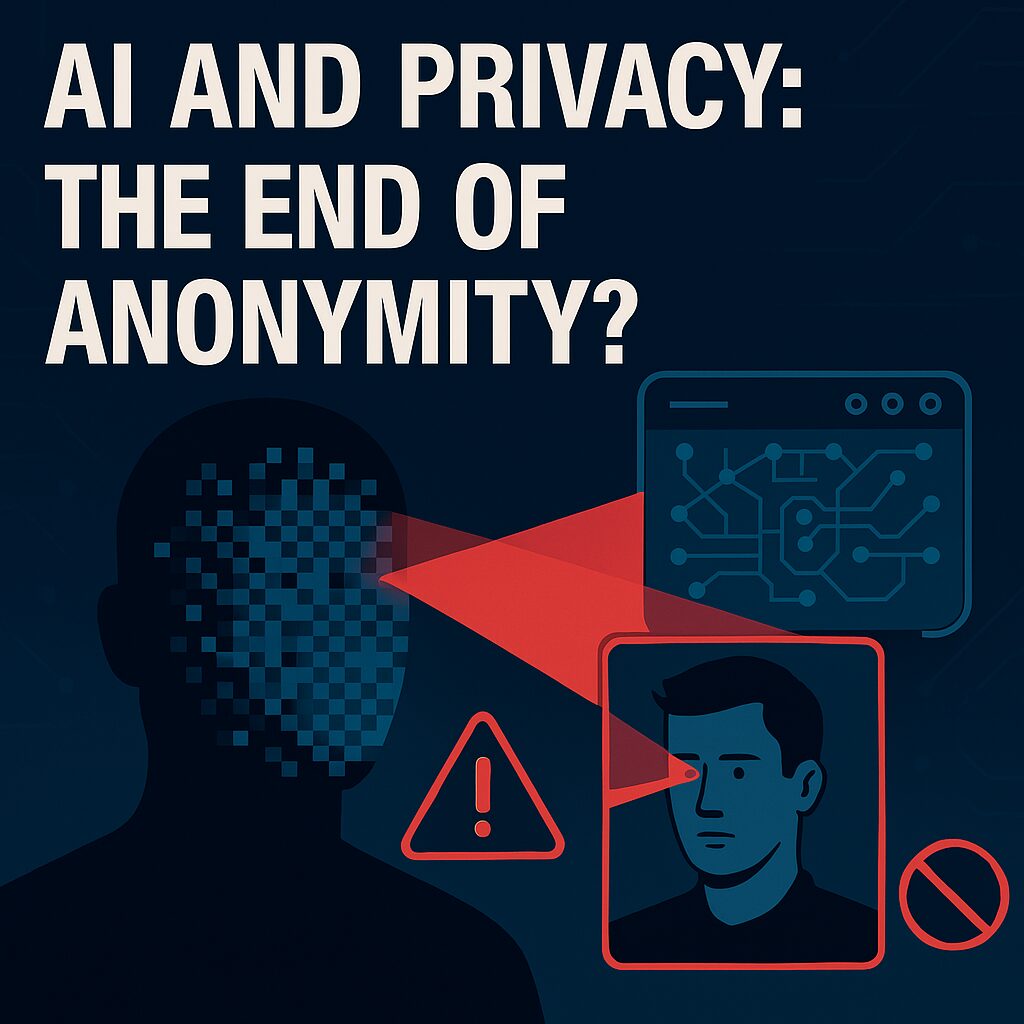Introduction
In the age of artificial intelligence, anonymity is under siege. As AI systems grow more powerful, traditional privacy safeguards—like data masking and pseudonymization—are proving inadequate. From facial recognition to voice cloning, AI is reshaping how personal data is collected, processed, and exposed.
This article explores the privacy risks posed by AI, the erosion of anonymity, and what individuals and organizations can do to protect themselves in 2025 and beyond.
🔍 What Is AI Privacy?
AI privacy refers to the protection of personal or sensitive data used by artificial intelligence systems. It includes:
- How data is collected, stored, and shared
- Whether individuals can opt in or out
- The transparency of AI decision-making processes
Unlike traditional data systems, AI can infer identities from seemingly anonymous data—making privacy harder to guarantee.
🧠 How AI Threatens Anonymity
| Threat | Description |
|---|---|
| Re-identification | AI can cross-reference datasets to identify individuals from anonymized data |
| Voice & Face Cloning | Generative AI can replicate voices and faces for impersonation |
| Behavioral Tracking | AI models track online behavior to build detailed user profiles |
| Data Scraping | Public data (e.g., resumes, photos) is used to train AI without consent |
| Predictive Inference | AI can infer sensitive traits (e.g., health status) from indirect data |
These capabilities make true anonymity nearly impossible in many digital environments.
⚖️ Legal and Ethical Implications
📜 Global Regulations
- GDPR (EU): Requires data minimization and purpose limitation
- CPPA (California): Supports opt-out signals and browser-based privacy controls
- AI Act (EU): Regulates high-risk AI systems and prohibits untargeted facial scraping
⚠️ Ethical Concerns
- Consent: Many users are unaware their data trains AI models
- Bias: AI systems may misidentify or discriminate against marginalized groups
- Surveillance: AI-powered tracking erodes civil liberties and personal autonomy
🛡️ Can We Protect Privacy in an AI World?
Experts suggest a multi-layered approach:
- Confidential Computing: Encrypts data during processing to prevent leaks
- Synthetic Data: Mimics real data without exposing identities
- Edge AI: Processes data locally to reduce exposure risks
- Opt-In Defaults: Shifts control back to users over data collection
- Supply Chain Oversight: Regulates how data flows into and out of AI systems
These strategies aim to preserve privacy without stifling innovation.
📈 SEO Tips for Privacy-Focused Content Creators
✅ Search-Friendly Titles
- “AI and Privacy: Is Anonymity Dead?”
- “Protecting Personal Data in the Age of AI”
✅ High-Impact Keywords
- “AI privacy risks 2025”
- “anonymity and artificial intelligence”
- “data protection in AI systems”
✅ Metadata Optimization
- Alt Text: “AI system scanning anonymized data for identity clues”
- Tags: #AIPrivacy #DataProtection #AnonymityInAI #EthicalAI #AIRegulation
Conclusion
AI is rewriting the rules of privacy. What was once anonymous can now be re-identified. What was once secure can now be inferred. As we embrace the benefits of intelligent systems, we must also confront their risks.

